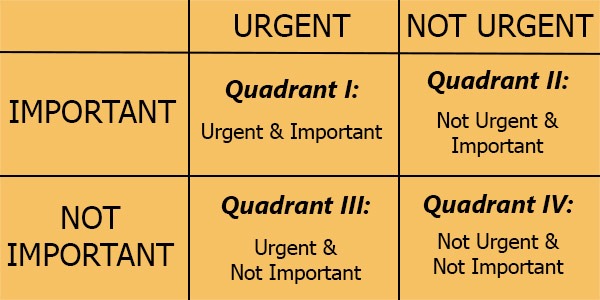Highly effective people are all around us, they are people who we can learn from and we can adopt some of their principles and practices. Just take a look at the sector you work in, from media, education, marketing, finance and sales. Most likely, these highly effective people have read 'The 7 Habits of Highly Effective People,' by Steven Covey published in 1989 but this book is still very relevant today.
It is important to change yourself first and this can be done by developing better habits, thus allowing a way to achieve lasting and personal change. There are 7 key habits Covey outlines resulting in personal and professional effectiveness. Some of you may already be doing some of these, so it's important to recognise what you're doing well and reflect on what you could start to do. Covey writes, 'we are creatures of habit.' How we act as well as who we are is defined by our habits. Below is a summary of the principles to explore:
The first habit: Be proactive and take control of your own fate - I recently attended a workshop by NABS which looked at the circle of concern vs. circle of control. Proactive people take responsibility of their own lives and behaviour and try to find a solution to a problem. Below are two centric circles, the dark blue is the circle of concern and the light blue is the circle of influence. The light blue circle represents things which can actually be done. Which do you fall into? People have the power to decide what happens between stimulus and response. A 30 day proactivity challenge may helps to find solutions. Focus on the internal rather than the external to help proactivity flourish.

Research Credit: https://davidrynick.com/circle-of-influence-and-circle-of-concern/
The second habit: Begin with the end in mind. Covey's recommendation is to visualize the end in mind. This could be in relation to a project and key goals but also larger life goals.
The third habit: Put first things first by rigourously prioritizing. When I started out in media, a boss took the time to draw out the below quadrant which was a 2x2 matrix. It helped me to understand how to prioritize tasks, he was using the Covey strategy. This has proved important and effective and it's a strategy I have used and in turn shared with people to help manage workload.

Credit Source: https://www.visionstoexcellence.com/stephen-covey-4-quadrants/
The most important quadrant is number two as the actions will positively impact your life. By working in quadrant 2 you should experience fewer crises.
The fourth habit: Think 'Win Win' - this strategy develops a long-term positive relationship to be created. Each action will strengthen a relationship rather than eroding it. Look for similarities and mutually satisfactory deals. Covey talks about the 'emotional bank account,' thus putting time, effort and good will into it. By doing this, trust grows and both parties can be flexible and sort out any miscommunication. Recommendations include, keeping promises, be explicit about what is expected, be courteous and sensitive.
The fifth habit: Seek first to understand, then to be understood. It is important to listen to what people say and understand their situation through empathic listening. By understanding the other person's frame of reference you can intellectually and emotionally understand them.
The sixth habit: Synergize and treat people with openness and respect. True synergy means people listen to each other and address a shared challenge and see this as an adventure. Synergy requires self-confidence and convinction. It is the belief that each party can lead to something great, even during a chaotic journey.
The seventh habit: Sharpen the saw to keep sawing - this means it is important to pause and take care of yourself. This is essential for long and lasting effectiveness. Covey writes there are four ways in which this can be achieved:
1) Physical fitness - regular exercise, healthy eating and to avoid undue stress
2) Spiritual health - praying and meditating, or regularly reflecting on your own values and what's normal for you
3) Mental health - read plenty of good books and organize and plan things to keep your mind sharp and fresh
4) Social and emotional health - seek to understand others, build positive long lasting relationships and work on projects that help improve lives.
In conclusion, I have learnt some of these habits through exemplary behaviour and observing the most effective people in media and education. I wanted to share my learnings and the Covey strategy to help with your career and life goals as we all face uncertain times.
Available on Amazon here: The 7 Habits of Highly Effective People
Research sources:
https://davidrynick.com/circle-of-influence-and-circle-of-concern/
https://www.visionstoexcellence.com/stephen-covey-4-quadrants/
No comments:
Post a Comment